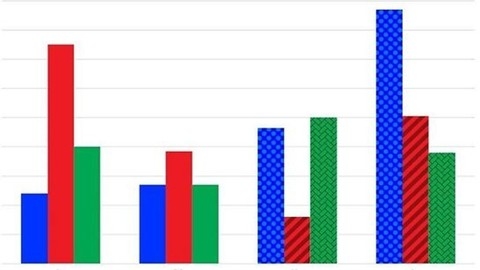Monitoring and evaluation (M&E) are essential tools for ensuring that projects and initiatives achieve their intended outcomes.
By tracking progress and assessing impact, M&E helps organizations make informed decisions, improve program effectiveness, and maximize the use of resources.
Learning M&E techniques can be incredibly valuable for anyone involved in project management, development work, or data-driven decision-making.
Finding a great M&E course on Udemy can be tough.
With so many options out there, it can be hard to know which course is truly comprehensive, engaging, and taught by experts.
You’re looking for a course that will provide you with the practical skills and knowledge you need to confidently implement M&E in your work.
We’ve done the research and recommend Monitoring and Evaluation (M&E) in Development Projects as the best course overall on Udemy.
This course combines essential theory with hands-on practice in Excel, equipping you with the tools to design M&E plans, collect data, and analyze results effectively.
While this course is our top pick, there are many other excellent options available on Udemy for various learning levels and interests.
Continue reading to explore our full list of recommendations and find the perfect course to advance your M&E skills.
Monitoring and Evaluation
You’ll start by understanding the importance of monitoring and evaluation in ensuring planned results are achieved and learning what works best.
The course covers the fundamental concepts, including the distinction between monitoring and evaluation.
You’ll learn what monitoring entails, such as tracking progress, and what evaluations involve, like assessing the effectiveness of interventions.
A key focus is on measurement techniques and understanding what can and cannot be measured.
The course delves into the concept of results, explaining the results chain and providing examples to solidify your understanding.
Data is another critical topic covered, including different data types (quantitative and qualitative, primary and secondary) and how data relates to information and knowledge.
The course also highlights the significance of indicators, their elements, and how to construct effective indicators.
Throughout the course, you’ll have opportunities to test your knowledge through interactive quizzes and exercises.
The instructor, Thomas Winderl, guides you through these concepts, ensuring you grasp the essentials of monitoring and evaluation.
If you’re interested in understanding how to measure progress, assess impact, and make informed decisions, this course is an excellent starting point.
Advanced Monitoring and Evaluation
You will learn about the fundamentals of project management and the role of M&E within it.
The course covers the differences between monitoring and evaluation, their objectives, and the components of an M&E system.
A significant portion focuses on designing logical frameworks, a crucial tool for planning and managing projects.
You’ll understand the result chain, SMART indicators, means of verification, and how to handle risks and assumptions within a log-frame.
Practical examples guide you through creating logical frameworks for different scenarios.
The course equips you with various M&E methods like direct observation, surveys, interviews, focus group discussions, and data triangulation.
You’ll learn to design effective questionnaires, focus group guides, key informant interview guides, observation checklists, and beneficiary sign-in sheets.
The use of Kobo Toolbox, an android application for electronic data collection, is covered in-depth, from creating accounts to authoring XLSForms and deploying them on mobile devices.
Sampling techniques, ethics and informed consent protocols, ensuring data quality, and research misconduct prevention are also addressed.
You’ll gain skills in quantitative and qualitative data analysis, including using statistical measures, charts, and qualitative analysis methods.
The course emphasizes accountability by teaching you how to share project information with beneficiaries and implement complaints and feedback mechanisms.
Finally, you’ll explore learning tools, events, and strategies for following up on recommendations to continuously improve projects.
ESSENTIALS OF THE LOGICAL FRAMEWORK APPROACH
The course starts with an introduction to the Logical Framework Approach itself, explaining its purpose and key components.
You’ll then dive into the Narrative Summary, which outlines the project’s objectives and how they link together.
Next, you’ll learn about Objectively Verifiable Indicators – measurable criteria to track progress towards your goals.
The course covers Means of Verification too, showing you how to identify data sources to verify your indicators.
After that, you’ll explore Assumptions and how to test the logic behind your project design.
Finally, the course walks you through the 10 Steps to a Logical Framework, giving you a practical roadmap to apply this approach.
Throughout, you’ll gain skills for clearly defining objectives, identifying risks, and monitoring your project’s performance.
Monitoring and Evaluation (M&E) in Development Projects
You’ll start with an introduction to monitoring and evaluation concepts, including their role in project cycles.
From there, you’ll dive into creating a performance monitoring plan, a crucial component that includes elements like logic models, logical frameworks, and performance indicator reference sheets.
The course covers essential data collection methods, both probability and non-probability sampling techniques.
You’ll even practice sample size calculations using an Excel template.
Data collection technology like Google Forms is also covered, ensuring you have practical skills.
Data analysis is a key focus, with modules dedicated to basic and advanced techniques in Microsoft Excel.
You’ll learn descriptive analysis using statistical formulas and intelligent, personalized suggestions within Excel.
The course also covers data visualization using Power BI, teaching you to create visually compelling report dashboards.
Evaluation is another important topic, with multiple modules exploring different evaluation approaches.
The course even includes a bonus section on advanced pivot table techniques in Excel for in-depth data analysis.
Throughout the course, you’ll gain hands-on experience with tools like logical framework templates, work plans, data collection forms, and pivot charts/tables.
You’ll also learn about timelines and slicers for filtering data.
The practical, tool-based approach ensures you develop real-world skills applicable to monitoring and evaluation projects.
RESULTS-BASED MANAGEMENT, MONITORING & EVALUATION
You will learn the foundational concepts of RBM, including what results are and the results chain.
The course covers the RBM process in detail, from context analysis and problem analysis to stakeholder engagement and setting objectives.
A major focus is on the Logical Framework Approach, a key tool in RBM.
You’ll learn how to develop a logical framework, including defining the narrative summary, objectively verifiable indicators, means of verification, and assumptions.
The course guides you through practical exercises like problem tree analysis and stakeholder analysis.
Project strategy is another important topic, teaching you how to identify approaches, conduct a SWOT analysis, and define your strategy.
Planning is covered extensively, with steps for building the logical framework, defining outcomes, outputs, activities, and inputs, and testing the results chain.
Monitoring and evaluation (M&E) is a core component.
You’ll understand the importance of M&E, learn about objectively verifiable indicators and means of verification, and gain skills in planning for results-based M&E.
Data collection methods, grouping indicators, creating a data collection toolkit, and building the M&E plan are all covered.
You will learn how to apply these concepts to real-world projects.
CPD Pre-Level Certificate in M&E
The course covers the fundamentals of monitoring and evaluation, helping you understand key concepts like target monitoring, results-based management, and management for development results.
You’ll learn about key performance indicators (KPIs) - what they are, their purpose, types, and characteristics.
The course even walks you through developing indicator reference sheets and creating KPIs using different approaches.
This practical knowledge is invaluable for monitoring and evaluation professionals.
The syllabus dives deep into monitoring and evaluation frameworks, explaining what they are and dissecting the components of the M&E framework matrix.
You’ll gain hands-on experience developing indicator reference sheets step-by-step.
It also covers planning and developing a comprehensive monitoring and evaluation plan.
You’ll understand the main components, steps involved, and even how to formulate the M&E plan budget.
The course provides an M&E plan template and example to reinforce your learning.
With monthly assignments, you’ll apply what you’ve learned, solidifying your understanding of crucial topics like KPIs, frameworks, and planning.
This course equips you with practical skills for monitoring and evaluation in the field of development.






